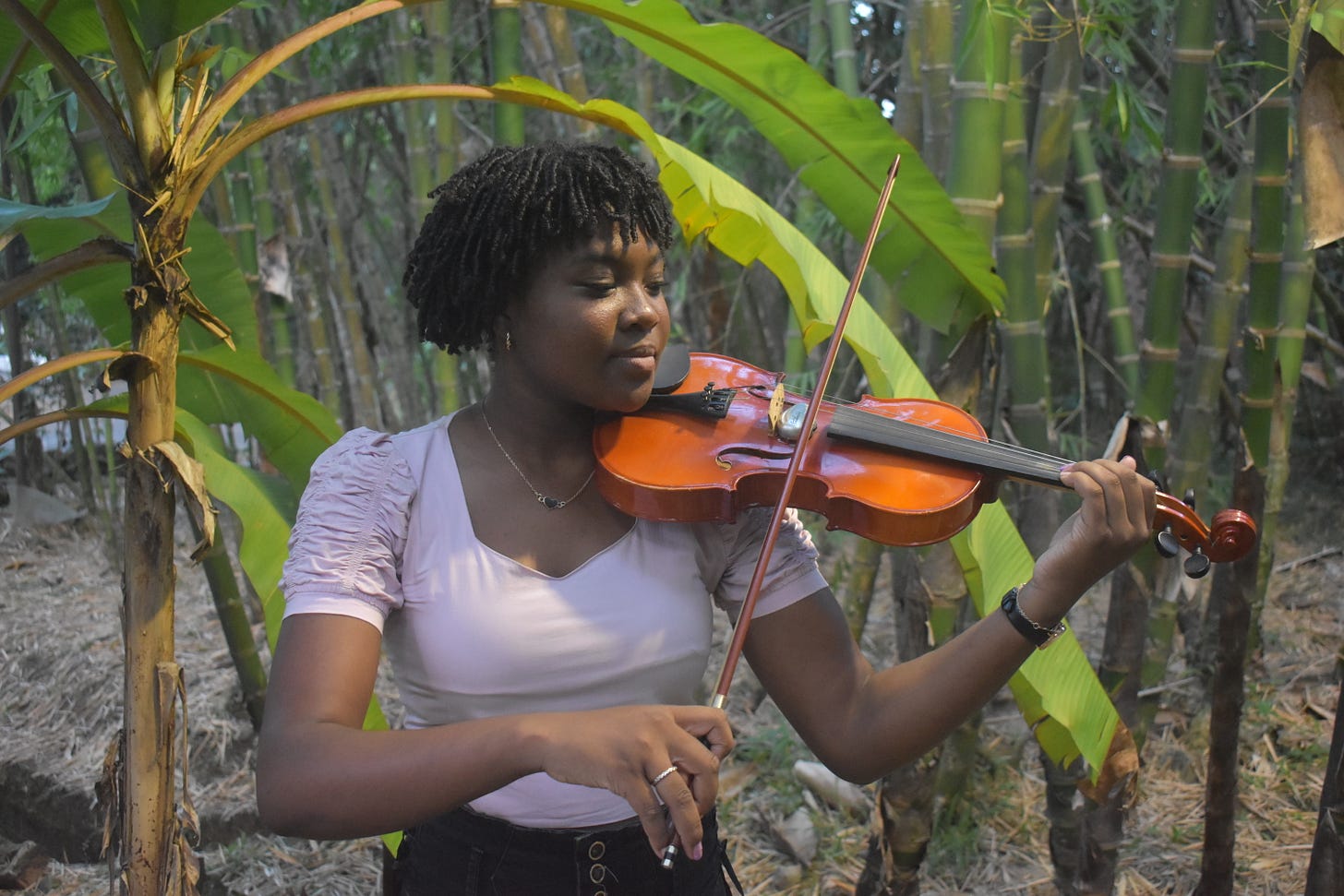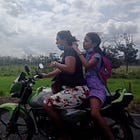As U.S. braces for Trump, it could learn a lot from the Global South about what "resistance" really means
Going beyond hashtags and doing the real work of building community is our strongest defense against authoritarianism
Donald Trump’s looming presidency, and his promises of “vengeance” on political enemies as well as authoritarian mass-deportation programs, have many U.S. pundits talking about “resistance” once again.
But while liberal lobby groups and lawmakers think of resistance mostly as fund-raising, I couldn’t help but think of lessons I’ve learned from communities in Latin America that face a level of daily oppression that makes the prospect of a Trump administration, even at its most authoritarian and violent, seem like a model form of government.
None of this is to downplay the genuine threats marginalized communities in the U.S. are about to face. Still, communities up north could learn much from their counterparts in Latin America.
Real resistance to oppressive policies, although very unlikely to be a topic of conversation among those putting a hashtag in front of the word on social media as they ask for your money, is surprisingly easy to start at an interpersonal and micro level — and doesn’t involve violent or politically charged strategies.
“A garden is worth more than a hundred Molotov cocktails,” a young Afro-Colombian musician from the conflict-torn region of Cauca, Colombia, who asked to be identified only as Valery for security reasons, told PWS in April.
For Valery, who hails from a community that faces tyrannical rule by the criminal armed groups who control the region where she lives, “community building is a radical act.”
Valery is a violinist and leads a musical group that performs traditional music in regions of Cauca that have had to learn how to survive largely outside of state presence and to communities that face extreme poverty, discrimination, and high rates of violence — violence which is often perpetrated by security forces and non-state actors alike.
Collective actions undertaken by a community aren’t just more effective than actions by individuals, they build the kind of relationships that make life better for everyone in the community.
The stronger the ties that bind communities together are, the more resilient those communities are to all forms of oppression, the more pleasant they are to the people who live in them, and as social trust within a community increases, those communities become safer as well.
We increasingly spend more of our lives in digital spaces, where our social interactions and interpersonal relations are more shallow and less rewarding. Many of those digital spaces are designed to polarize, with algorithms on most social websites designed to foment conflict and arguments, and even warp how we learn from other people.
The modern digital realm is designed to separate us into feuding groups and replace real-world community building with a pale virtual substitute that, while better than not socializing at all, often leaves us isolated and alone.
The strongmen who run authoritarian governments want their citizens to feel hopeless, ground down by the oppressive machinery of the state, and isolated. A fragmented community is much easier to oppress, and a community paralyzed by fear — be it of criminals, migrants, or anything else — is one which politicians like Trump, who divide rather than unite, can most easily draw support from.
But we can step out of that isolation, and away from the doom scrolling on apps scientifically designed to be addictive, and into the real world. And we can begin to build community on a micro level starting with our neighbors, the people who live in our apartment building, or on our block.
It doesn’t have to be overtly political to be “resistance” in the sense meant by Valery in Cauca. I lived for many years in Brooklyn, and for most of that time, I didn’t even know the names of most of the people who lived in my building. We led parallel lives that didn’t touch any more than polite “hellos” on the steps and in the hallways.

This was a missed opportunity! Building community starts on a micro-level. Invite your neighbors over for dinner. Get to know them. Build trust with them. They will watch out for you, and you will do the same for them. Extend that model. Plant a community garden, and give the small harvests to your friends.
Join a local book club. Volunteer at a food bank, or start one.
“Every act of community building is a radical act of resistance,” said Valery. “A community with deep social ties doesn’t just ‘endure’,” shared hardships or oppression, she continued, “it actively resists it.”
An organic safety net built from interpersonal relationships makes us all safer, stronger, and happier.
It’s worth remembering that politicians, from all political parties in all countries, want you to think of them as the solution. When they send you those fundraising emails and text messages, they present themselves as the saviors against the “other”.
But the more bonds we have at a local level, the more solutions we can find among ourselves as a community, and the less afraid we become. We can more easily make informed decisions when we stand together, and disagreements are more likely to be handled civilly, rather than online, where political arguments often quickly become tribal, and deeply insulting.
And these structures we build are lasting. As vulnerable communities rightly brace for the Trump administration's plans to deport tens of millions of people and empower police forces in communities where relations with those security forces are borderline hostile, it is worth remembering that many of these policies in the U.S. are bipartisan.
Trump’s ‘border czar; Tom Homan, who has promised 20 million deportations, was an Obama appointee as well. As then-director of ICE, he was the man who invented family separations — a policy for which he was awarded a medal by the White House.
And Hoffman’s promises of mass deportation are modeled after President Dwight D. Eisenhower’s “Operation Wetback”, a deeply racist program that deported millions of Mexicans, and more than a few U.S. citizens.
Support for such horrific policies often stretches across the political aisle, but politicians rely on fear to galvanize their popular support.
Anti-migrant rhetoric comes from a place of insecurity and disinformation. We are more susceptible to both when we are fragmented and isolated.
People in Cauca don’t talk of “enduring” the conditions they face — a passive response that implies a lack of agency — they “resist”. That word means many things to many people but ultimately starts with simply reaching out to our fellow community members.
“Every teenager who picks up a paintbrush or a musical instrument instead of a gun,” said Valery, “is a life saved. It’s one more person making our community better, and safer, instead of more violent.”
Politicians in wealthy Western countries often deride or condescend to terms like “mutual aid”. But it works. As I write these words, volunteers creating mutual aid networks in war-torn Sudan keep millions of people fed who would otherwise not be.
The U.S. will face considerable challenges in the coming years, but citizens there can learn many lessons from communities in the global south who have faced much worse conditions and not only endured but prospered.
Perhaps it is quoted to the point of bordering on cliché, but Gandhi was right when he described resistance as the simple act of being the change you want to see.
And we can all start today. On our block, in our building, with our family members or co-workers— anywhere we can build grassroots networks.
That’s how we build a resistance that goes beyond hashtags.
Truly independent media organizations like PWS, will be incredibly important in the coming years far beyond just the United States. As the world increasingly lurches towards authoritarianism and isolationism, indie media is on the front lines in “resistance” as well.
If you haven’t taken out a paid subscription to support us, we urge you to consider doing so. If you have, thank you. You’re helping to keep us able to keep reporting and providing the context the big media companies so often miss.





Border Czar is Tom Homan